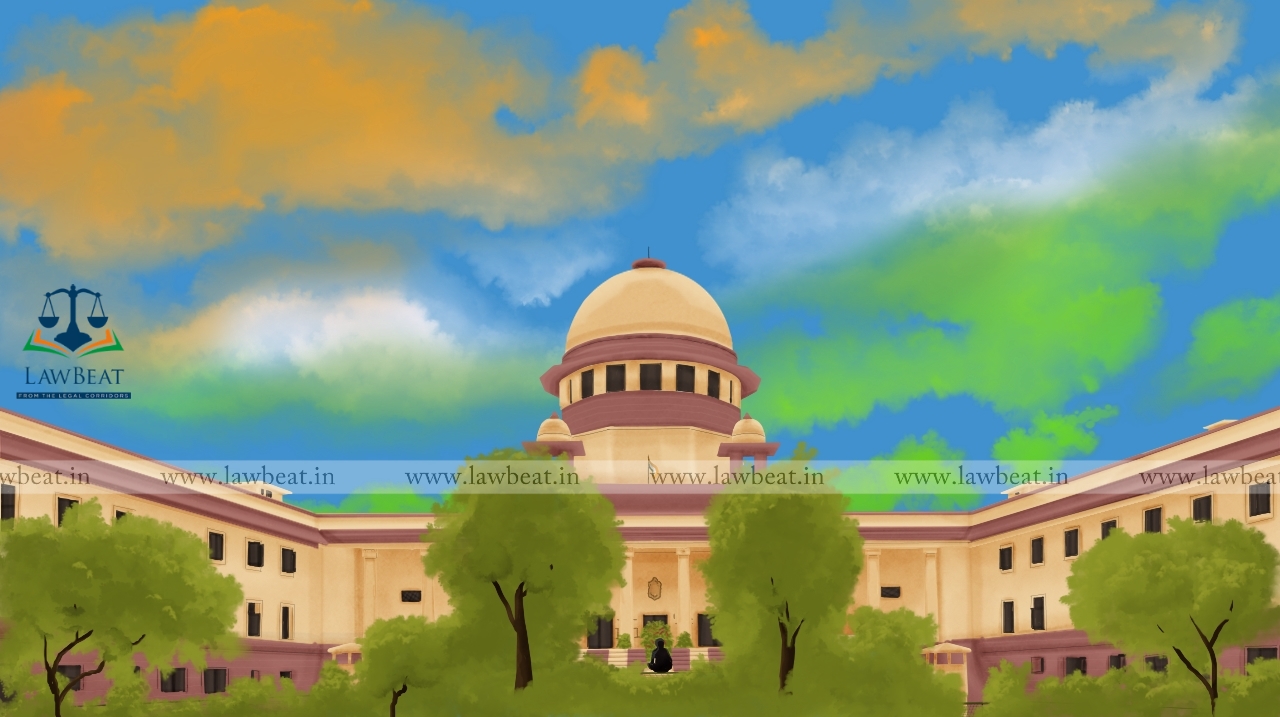Court Bound To Examine Material On Record To Grant Bail Under UAPA: Supreme Court

The Supreme Court has recently granted bail to a person accused of being operatives/functionaries of a terrorist gang TPC (Tritiya Prastuti Committee) & extorting levy from coal traders, transporters & contractors.
The Bench comprising Justice L Nageshwar Rao & Justice S Ravindra Bhatt observed that while considering the grant of bail under Section 43 (5) D, it is the bounden duty of the Court to apply its mind to examine the entire material on record for the purpose of satisfying itself, whether a prima facie case is made out against the accused or not.
In the present matter, an FIR was registered against the accused (“appellant”) u/s 120B/414/384/386/387 of the Indian Penal Code,1860 (IPC) read with Sections 17/18/21 of the Unlawful Activities (Prevention) Act, 1967 along with Sections 25 (1B) (a)/26/35 of the Arms Act and Section 17 (1) (2) of the Criminal Law Amendment (CLA) Act. The accused filed an application for bail in the Court of Judicial Commissioner-cum-Special Judge, National Investigation Agency at Ranchi after being apprehended on 10.01.2020 which was dismissed. Thereafter, an appeal was filed against the order of the NIA in the High Court which was dismissed on 24.06.2020 by noting that there was material on record to show that the appellant was in constant touch with the members of the terrorist organization in order to run his business. The accused thus appealed before this Court against the order passed by the High Court.
The Bench referred to the Apex Court judgement in National Investigation Agency v. Zahoor Ahmad Shah Watali (2019) 5 SCC 1 in which this Court considered the parameters for exercise of the power under Section 43 (5) D, & held as follows:
“23. By virtue of the proviso to sub-section (5), it is the duty of the Court to be satis.ed that there are reasonable grounds for believing that the accusation against the accused is prima facie true or otherwise. Our attention was invited to the decisions of this Court, which has had an occasion to deal with similar special provisions in TADA and MCOCA. The principle underlying those decisions may have some bearing while considering the prayer for bail in relation to the o4ences under the 1967 Act as well. Notably, under the special enactments such as TADA, MCOCA and the Narcotic Drugs and Psychotropic Substances Act, 1985, the Court is required to record its opinion that there are reasonable grounds for believing that the accused is “not guilty” of the alleged o4ence. There is a degree of difference between the satisfaction to be recorded by the Court that there are reasonable grounds for believing that the accused is “not guilty” of such offence and the satisfaction to be recorded for the purposes of the 1967 Act that there are reasonable grounds for believing that the accusation against such person is “prima facie” true. By its very nature, the expression “prima facie true” would mean that the materials/evidence collated by the investigating agency in reference to the accusation against the accused concerned in the first information report, must prevail until contradicted and overcome or disproved by other evidence, and on the face of it, shows the complicity of such accused in the commission of the stated offence. It must be good and sufficient on its face to establish a given fact or the chain of facts constituting the stated offence, unless rebutted or contradicted. In one sense, the degree of satisfaction is lighter when the Court has to opine that the accusation is “prima facie true”, as compared to the opinion of the accused “not guilty” of such offence as required under the other special enactments. In any case, the degree of satisfaction to be recorded by the Court for opining that there are reasonable grounds for believing that the accusation against the accused is prima facie true, is lighter than the degree of satisfaction to be recorded for considering a discharge application or framing of charges in relation to offences under the 1967 Act....”
Thus the Court after going through the material on record opined that the appellant erred in not granting the bail to the appellant & observed that, “ we are not satis.ed that a prima facie case has been made out against the Appellant relating to the o4ences alleged against him. We make it clear that these findings are restricted only for the purpose of grant of bail to the Appellant and the trial court shall not be influenced by these observations during trial.”
Case Title: Sudesh Kedia v. Union of India | Criminal Appeal Nos. 314-315 of 2021
Penned By: Justice L. Nageswara Rao
